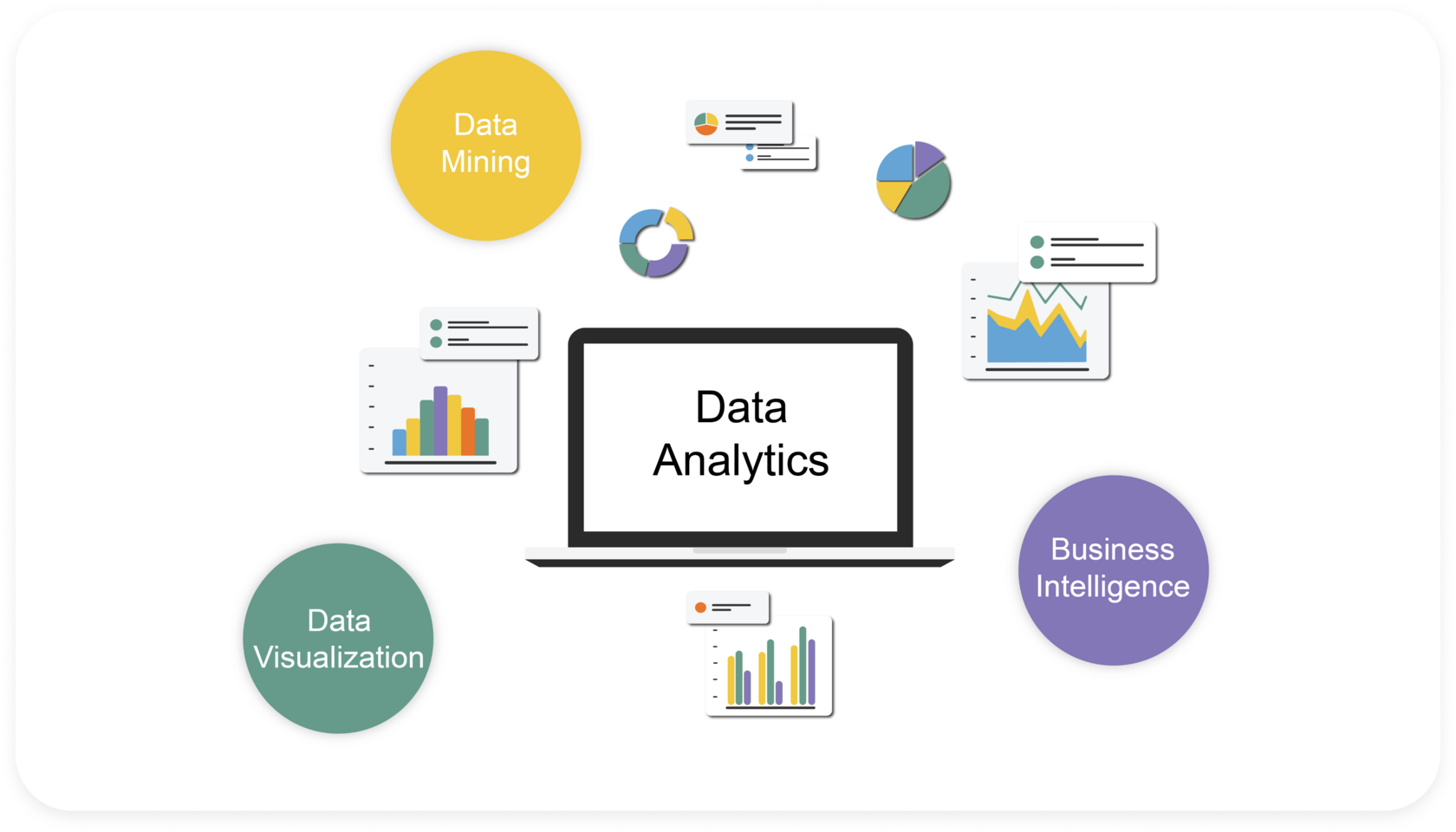Gain One-upmanship With Effective Analytics Release
Gain One-upmanship With Effective Analytics Release
Blog Article
Maximize Development: Exactly How Analytics Drive Better Methods
In today's data-driven landscape, organizations significantly recognize the crucial duty of analytics fit efficient development methods. By using information insights, organizations can fine-tune their operational techniques, anticipate market adjustments, and enhance client engagement. Nonetheless, the obstacle exists not only in accumulating information yet in successfully interpreting it to drive tangible results. As we check out the vital advantages and techniques linked with analytics, an essential question arises: exactly how can companies ensure they are leveraging these insights to unlock their complete potential? The response might redefine the future of tactical preparation.
Understanding Information Analytics
Information analytics is an organized computational analysis of information that enables organizations to uncover purposeful patterns and understandings. This process encompasses a range of methods, consisting of analytical evaluation, anticipating modeling, and data mining, which jointly aim to change raw data into workable information - Analytics. By using these techniques, companies can make educated decisions that are rooted in empirical evidence rather than intuition alone
The structure of data analytics depends on its ability to manage large quantities of details from diverse resources. This consists of organized information, such as databases, and unstructured data, including social media sites communications and client responses. Via the use of specialized software program and devices, experts can remove and process this information effectively, determining patterns and correlations that might not be immediately noticeable.
Understanding information analytics also entails recognizing the significance of data high quality and stability. Reputable and accurate information is essential for purposeful analysis; therefore, organizations must carry out robust data governance methods. The iterative nature of analytics allows for continual improvement and renovation of methods, ensuring that organizations continue to be dexterous in the face of altering market dynamics and customer habits.
Key Advantages of Analytics

One of the vital advantages of analytics is its capacity to supply actionable understandings. Organizations can quickly analyze substantial amounts of information, discovering patterns that may not be right away obvious.
One more considerable benefit is boosted consumer understanding. Analytics tools enable companies to section their target market, track consumer behavior, and individualize advertising efforts. This targeted method not just improves client involvement yet additionally drives higher conversion rates.

Implementing Analytics Techniques
To fully recognize the advantages of analytics, companies must take on organized strategies for execution. This begins with plainly specifying purposes that line up with wider service goals. By establishing certain, measurable results, organizations can concentrate their analytics initiatives on areas that produce the highest return on investment.
Next, companies should focus on information governance to make sure the integrity and safety and security of the data being examined. This includes establishing protocols for information collection, storage, and access while adhering to appropriate policies. Making sure premium information is vital for creating meaningful insights.
Furthermore, fostering a society of data-driven decision-making is vital. This needs training employees to interpret analytics findings and encouraging partnership throughout divisions. When teams understand the value of analytics, they are most likely to incorporate understandings right into their day-to-day procedures.
Last but not least, organizations should regularly examine and improve their analytics strategies. The over at this website landscape of data and innovation is continually evolving, and remaining adaptable will allow companies to take advantage of brand-new devices and techniques successfully. By carrying out these structured approaches, organizations can make best use of the impact of their analytics efforts and drive lasting development.
Tools for Reliable Evaluation
Reliable analysis relies upon a range of devices that promote the removal of understandings from information - Analytics. These devices can vary from easy spread sheet applications to sophisticated equipment finding out platforms, each serving a distinct objective in the logical process
Information visualization software, such as Tableau and Power BI, plays a critical duty in changing complex datasets into easy to understand graphical representations. These tools enable experts to determine trends and patterns swiftly, permitting even more enlightened decision-making.
Statistical analysis software, like R and SAS, supplies advanced capabilities for conducting thorough analyses, including regression, hypothesis screening, and predictive modeling - Analytics. These features equip organizations from this source to attract meaningful final thoughts from their information, determining possible opportunities and threats
Moreover, data source administration systems such as SQL and NoSQL databases offer the required facilities for keeping and inquiring big quantities of data efficiently. They make sure that information is organized and available for navigate here evaluation.
Finally, organization knowledge systems integrate different information sources, providing a thorough view of business performance. By making use of these devices effectively, companies can enhance their logical capacities, allowing them to develop strategies that take full advantage of growth and improve total efficiency.
Study of Success
Successful organizations often utilize data analytics to drive impactful methods, as evidenced by several remarkable study. One noticeable example is Netflix, which utilizes innovative algorithms to assess customer preferences and habits. By employing these understandings, Netflix has effectively customized its material referrals, leading to increased customer interaction and customer retention. Their data-driven method has definitely added to their condition as a leading streaming service.

In addition, Starbucks employs information analytics to establish optimal store areas and improve its item offerings. By examining consumer demographics and acquiring patterns, Starbucks effectively identifies high-potential markets and tailors its menu to neighborhood preferences, driving sales and customer loyalty.
These study show that efficient use of information analytics can bring about tactical advantages, cultivating innovation and development within organizations throughout different sectors.
Conclusion
To conclude, the integration of analytics into organizational approaches dramatically boosts decision-making processes and promotes lasting development. By leveraging data-driven insights, services can recognize fads, anticipate market shifts, and enhance procedures. The reliable application of analytics tools further sustains agility and development, allowing companies to browse competitive landscapes with better precision. Eventually, a dedication to analytics not only drives immediate performance enhancements yet also protects lasting success in an ever-evolving marketplace.
Information analytics is an organized computational analysis of data that enables companies to discover purposeful patterns and understandings.Understanding information analytics also includes acknowledging the significance of data quality and honesty. Accurate and dependable data is essential for purposeful analysis; thus, organizations must execute durable information administration practices.Following, organizations need to prioritize information governance to ensure the integrity and safety of the data being evaluated.Effective companies usually take advantage of data analytics to drive impactful techniques, as confirmed by several notable instance researches.
Report this page